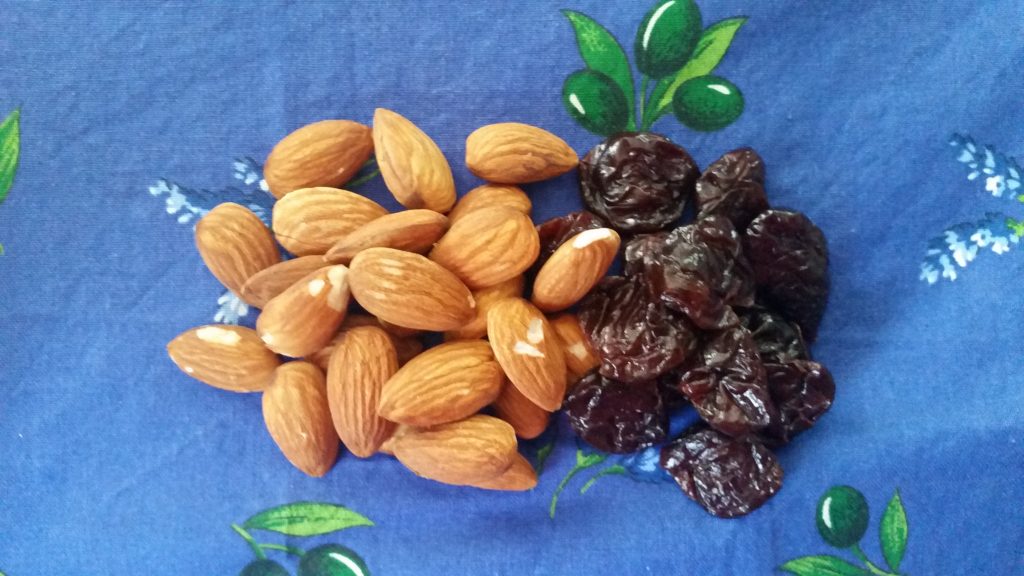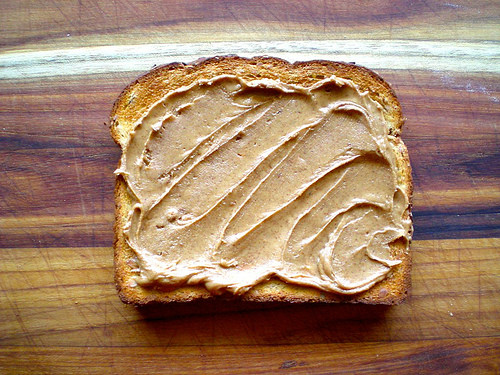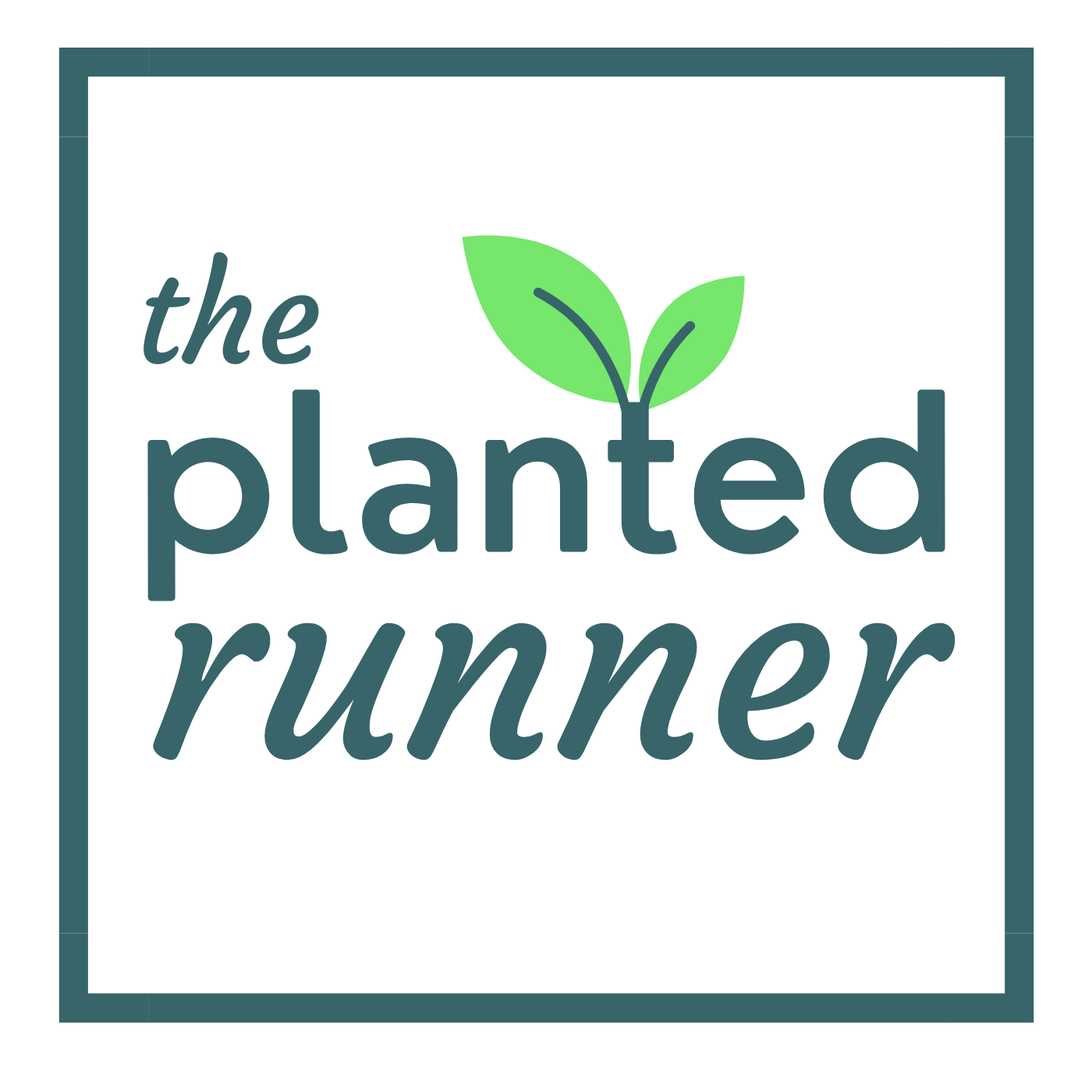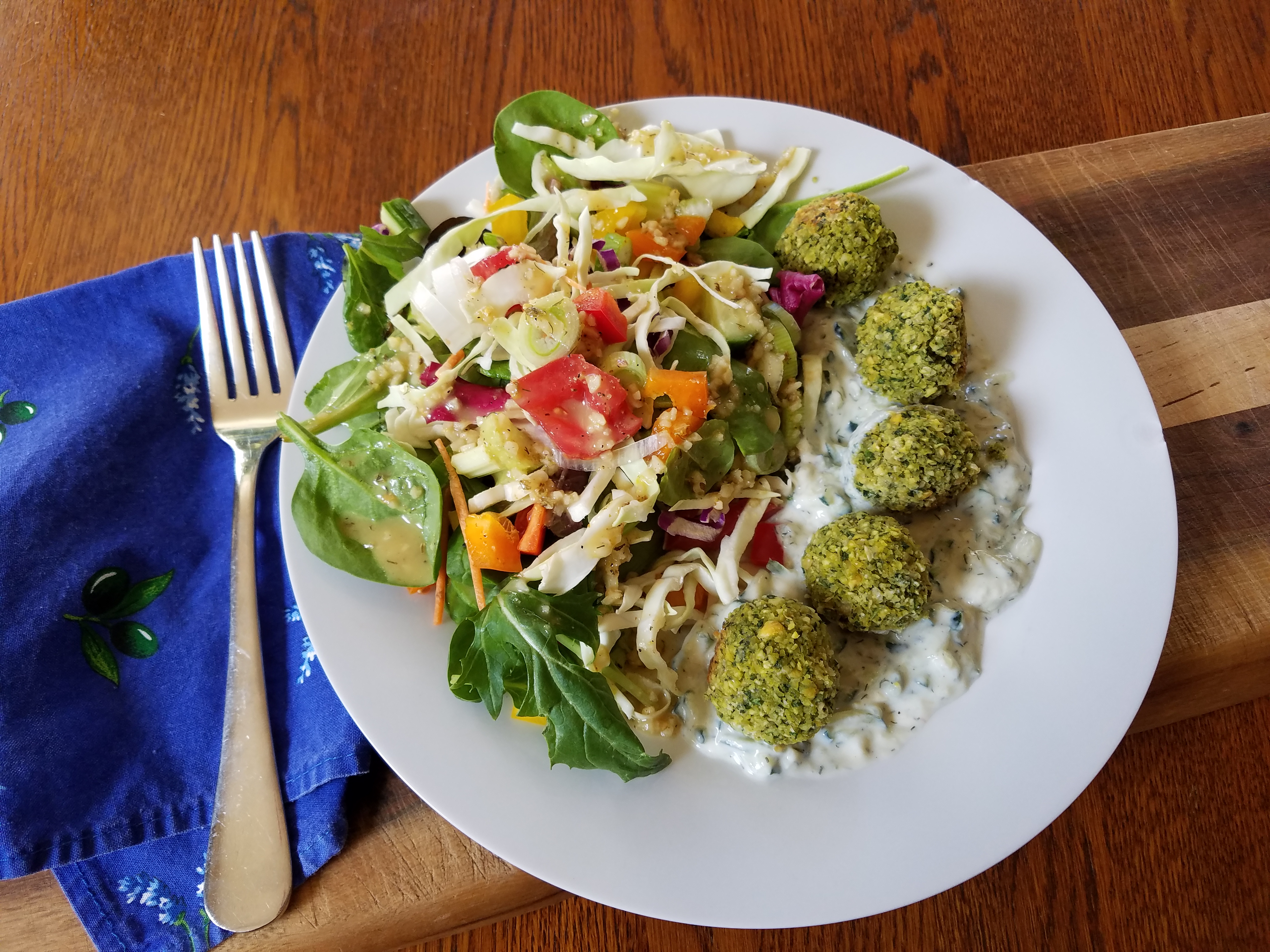One of my favorite parts of my job coaching at Runners Connect is stepping behind the mic to host a week of the Extra Kick Podcast each month.
We answer just one running or training questions per day in a short daily podcast. 
Normally, I don’t post what I talk about there on The Planted Runner, but today’s question was just too perfect not to.
And my answer might just surprise you!
Below is the full transcript.
If you’d prefer to listen instead of read, click here and go to Episode 143. Better yet, subscribe wherever you get your podcasts and you can get the latest episodes daily!
Mary Kate sent in her question for the podcast by email:
I’ve been considering trying out a vegan diet for a long time but hesitate as I’m afraid it will affect my running. Any tips on plant-based diets for runners? Should I make the transition during my marathon buildup or wait until I’m taking a break? Thanks!
Great question, Mary Kate, and this is something that is very near and dear to my heart as a 100% plant-based marathon runner myself. Or maybe I should say it’s near and dear to my stomach!
Yes, you absolutely can become vegan during marathon training and it very well could affect your running–for the better. But let’s be sure we are talking about the same thing here.
Vegan simply means that you choose not to consume or use any animal products. This lifestyle can have health benefits, but animal welfare and/or environmental issues are the primary reasons behind the choice.
Being a vegan is defined by what you don’t eat, not what you do eat.

Which means that you can be entirely vegan and subsist on potato chips, margarine, and white bread. Not exactly rocket fuel for a marathoner.
Now if you are talking about a 100% whole foods plant based diet, that also just so happens to be better for the planet and certainly better for the animals, then you are creating an eating pattern that focuses on what you do eat and has very little to do with what you don’t eat. Big difference!
And despite whatever the most militant vegan, plant-based, whole foods advocate out there says, there is simply ZERO evidence that a 90% plant diet is healthier than a 100% plant diet.
Eating more plants is good for everyone and most certainly for your running, so focus on the rich variety of foods that you include on your plate (like vegetables, fruits, whole grains, legumes, nuts, and seeds), and less on the foods that you are trying to eliminate.
Most athletes are afraid of plant diets because they think that they won’t have enough fuel to run well. This can happen to you as you transition to eating just plants, but it is very unlikely to be coming from the food you are eating. It’s far more likely to happen because most people naturally eat fewer calories when they fill up on salad, black beans, and sweet potatoes and instead of cheese and bacon.
So the key to avoid under fueling is to eat more! Sounds awesome, right? For me, this is a huge benefit to eating this way. I have a big appetite and I am much happier with a full belly than constantly trying to eat less. Plants naturally are micro-nutrient dense, full of fiber, and with the exception of nuts, seeds, and oils, have fewer calories by volume than meat and dairy. So you can eat a larger volume of food for fewer calories.
The flip side to that if you are someone who struggles to eat enough while training, you’ll need to be sure that your meals are filling and you eat often. Liquids are great for cramming in a lot of nutrition and calories without your brain realizing it, so a veggie and fruit packed smoothie can be very helpful meeting your recovery needs quickly after a long run.
Once you tell the world that you are no longer eating meat and dairy, be prepared to answer the number one question you’ll face: where do you get your protein?
All whole, unprocessed plants have protein. We eat food, not macronutrients. Nuts, seeds, legumes and grains have lots of protein as well as soy products like tofu and tempeh.
And you don’t need to specifically combine proteins like rice and beans in the same meal to get all your amino acids as long as you are eating a variety throughout the day.
Without much thinking about it, you will naturally consume anywhere for 50-60% unprocessed carbohydrate, 10-20% healthy fats, and 10-20% protein a day, which is well within the US recommended daily allowances as well as what most sports nutritionists recommend for endurance athletes.
For reference, elite Kenyan athletes typically eat a mainly vegetarian diet with only meat a couple times a week and it’s reported that their diets are about 75% carbohydrate, so there’s something to be said for that!
Some examples of a typical whole plants breakfast is a bowl of steel cut or rolled oats mixed with non-dairy milk, fresh fruit, some chia or flax seeds.
A good snack would be fresh or dried fruit with a small handful of cashews or almonds.
Lunch could be a big salad with lots of veggies, avocado, chickpeas, tahini, and quinoa.
A banana with peanut butter on toast makes a good snack or breakfast and of course the standard veggies and hummus is a classic vegetarian snack for a good reason.

Dinner might be a veggie burrito or chili and cornbread, way too many choices to list here!
The point is when you fill your plate with plants, you are doing more for your body and your running, regardless of whether you choose to go 100% plant based or not.
I personally find it simpler to be a 100% herbivore because it helps me continually make better choices without as much temptation. I’m definitely a black and white person, so going 100% makes the most sense for me.
One thing all vegans need is to supplement with is vitamin B12. In fact, many meat eaters are short on this nutrient as well, but the sources in a plant-only diet are limited to a few fortified foods, so taking a chewable sublingual B12 pill once a day or once a week depending on dosage is essential. But other than that, if you are eating your greens every day as well as all of the rest of the colors, you are most likely doing a great job getting everything your body needs.
Most people find that they recover better and have more energy when they eat this way. I know I do.
I could go on all day on this subject, and I appreciate you sending in the question, Mary Kate. And if you are interested in learning how you can improve your nutrition and your running and you have a question for one of the coaches, go to runnersconnect.net/daily and record your question there. We’d love to hear from you.

